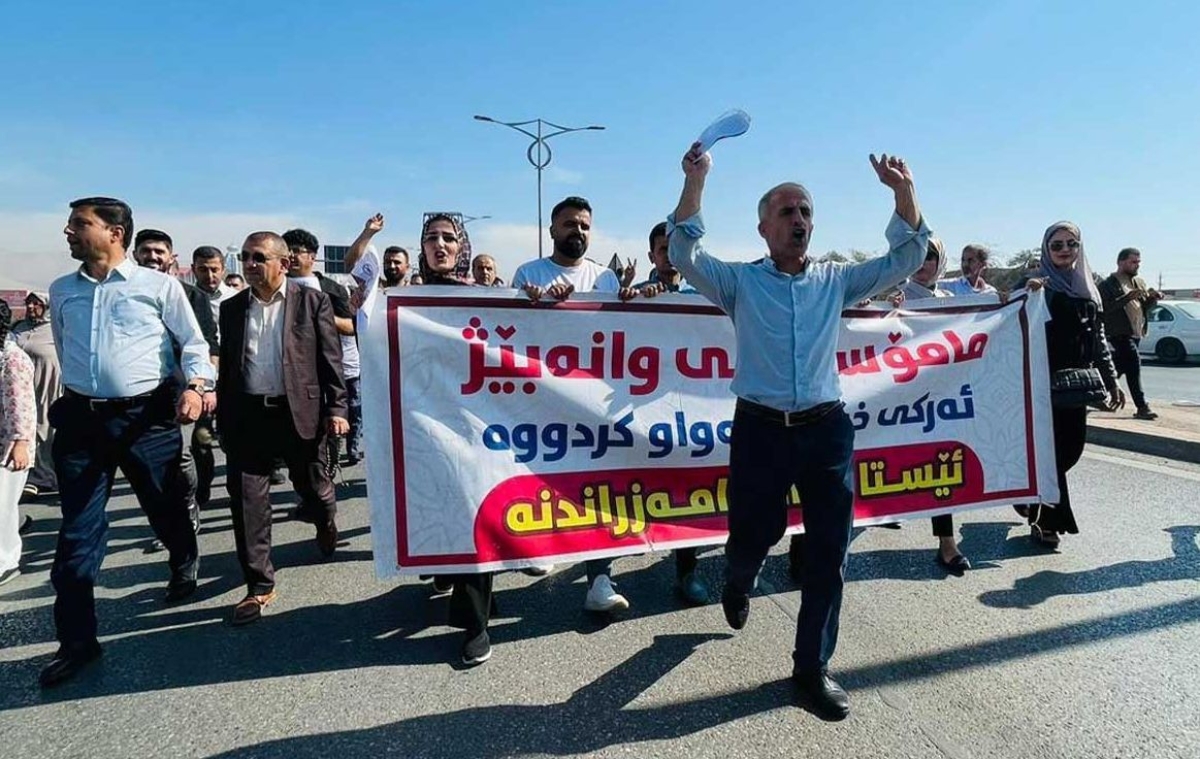Staatsangestellte in Irakisch-Kurdistan treten in Streik

Lehrerdemonstration in Suleymaniah im Februar 2924, Bildquelle: Facebook
Seit langem rumort es in Irakisch-Kurdistan, in den vergangenen Monaten streikten Lehrerinnen und Lehrer, weil sie ihre Gehälter nicht erhielten, nun traten im Süden der Region auch andere Angestellte des öffentlichen Dienstes in den Ausstand:
As the government’s inability to pay its employees drags on for another month, civil servants from a variety of sectors went on strike on Sunday in multiple areas in southern Kurdistan Region - Sulaimani and Halabja provinces, Raparin and Garmiyan administrations, and Koya and Chamchamal districts.
A group of Chamchamal’s public service employees walked off the job over the Kurdistan Regional Government’s (KRG) continued failure to pay their salaries on time, including healthcare workers at Shahid Peshraw hospital and Charmo health center.
Students at the University of Charmo also announced that they will not be attending lectures until April 1 as they have not received their monthly stipends, and threatened to extend their protest if the allowances are not paid before that date. Consequently, university lecturers and staff did not attend classes either.
A group of students and staff at the University of Sulaimani and the province’s polytechnic university also did not attend classes for the same reasons.
“The students’ families have not received their salaries, and one cannot study with empty pockets,” Harman Jamil, spokesperson for Charmo university student representatives, told Rudaw.
“The students have not received any stipends either, while students in Erbil and Duhok have,” he added.
Twana Najaf, head of the KRG’s administration and finance office, told Rudaw on Saturday that some universities have received funds for two monthly allowances while others have only received one, stressing that there has been no discrimination between the provinces in distributing the stipends, but that the payment depends on cash availability in the banks.